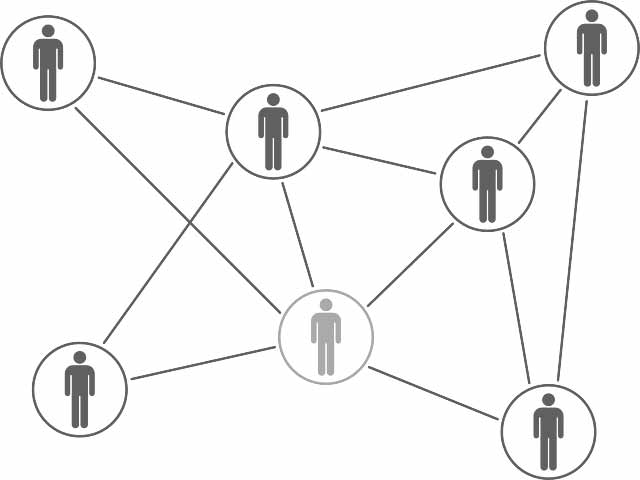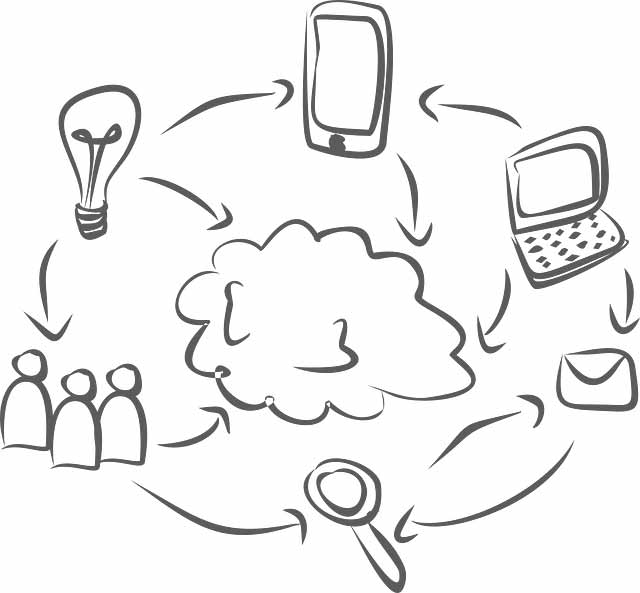Without diving into a debate on free speech, the precedence has nevertheless been set by Big Tech where the reasons for being banned and deplatformed are increasingly ambiguous and open to interpretation, inevitably resulting in encroachment on what one can share. What can we as Christians do about this in response?
The future of what’s acceptable?

First off, I’d like to distinguish between what’s happening on the political front and what events could transpire affecting Christ-followers. Being a Christian doesn’t necessarily mean you’re on the right or the left, and there are certainly extremists on both sides of the aisle who’s behavior in recent months and years should cause all of us to pause and think.
Having your voice represented and knowing who to trust are both very important issues of the day. What concerns me even more however is the future we the church may be heading towards based on recent decisions by Big Tech and fellow advocates to ban, cancel, and deplatform people based on questionable interpretations of what’s acceptable and what’s not.
Imagine the very real possibility of “unacceptable” use being broadened into misinterpretations of Biblical scriptures. Topics around slavery, women, and homosexuality could simply result in labels of hate speech (we of course know, to the contrary, that the pure essence of the law, per Jesus Himself, is to love God and love others – Matt 22:37-40). Since we have shifted to an online-first world in this new decade, what happens to the body of Christ if mislabeling goes that far? And, what can we do about it now?
First, share the Love
It’s a rare event in our lifetimes to be afforded such a golden opportunity.

As the entire world suffers effects from a pandemic, people are depressed, hopeless, and angry. Their anger easily joins forces with other problems, such as the feeling of not being heard, which then results in taking a stand (and sometimes taking it too far- literally!)
With such a cloudy gloom hanging like a thick fog in the air, no end in sight, those of us who believe shouldn’t become just a mirror or echo chamber. It’s easy to fall into that mindset, but it’s a worldly mindset. We are called to set our minds on the things above, not the things in this world (Col 3:2). Inside each of us is the Spirit, and His fruit is love, joy, peace, and so on (Gal 5:22-23).
The moment we have right now, in the middle of so many changes taking place, gives us an amazing opportunity to share what (and Who) real Love is. Big Tech and social platforms, problematic as they are, still make this 1000% easier than ever before. Let’s use these platforms to stand out in the crowded stream of bitterness and negativity by keeping our perspective in the right place at all times.
Decentralize all the things

If recent bans from the Facebooks and the Twitters of the world have done anything, they have brought to the fore what privacy advocates, neutrality proponents, and monopolistic alarmists have been shouting for quite some time. Without even touching the topic of overarching control, I think it’s fair to say that dependence on any one platform for communication is a recipe for disaster. Especially when that platform is not decentralized.
We’ve seen a wave of folks jumping to alt-tech platforms such as Parler, MeWe, and Rumble. While these platforms may be more privacy-centric and tolerant in their upbringing, many of them have and will face a similar single-point-of-failure risk- a risk demonstrated in early January with Parler being taken offline by Amazon/AWS and removed from the Google and Apple app stores.
If Biblical scripture and Christian morals are next on the chopping block, having a presence on a decentralized system (using technology such as peer-to-peer, or P2P) and building up our circle of trusted people will be essential. Examples of these distributed systems are Minds (a Facebook alternative), Solid (from Tim Berners-Lee, inventor of the World Wide Web), and a slew of others.
Regardless of the platform or system, keep in mind that content may be blocked from reaching you, and your content may be prevented from reaching others, sometimes without any notice (due to algorithms, firewalls, service outages, or even shadow banning). That being said, don’t be afraid to report and moderate content. Be intentional about keeping our virtual communities clean (see 1 Cor 15:33).
Leverage the real internet

Contrary to what many may think, the internet is more than just the experience of a few major apps and websites. It’s more than Google, more than Facebook, YouTube, iMessage, Discord, or Tiktok. It’s more than Email or the Web.
The real internet is a global network of networks, connecting devices together to provide the infrastructure for such services. How does this benefit us? It allows for use of our own connectivity (or one rented elsewhere) to serve content to others. This can be done in many different ways, but hosting your own services or using distributed-based apps can help ensure that others can reach you.
A few examples of this are:
- Using P2P messaging apps such as TwinMe or Briar
- Installing a Web server on your computer or a remote server
- Configuring your own Email server (this one can be tricky)
- Sharing files using BitTorrent or by running your own FTP server
While hosting your own services can offer additional reach, this too is subject to being blocked. Keep in mind that ISPs, especially home internet providers and wireless mobile carriers, typically (and rightfully so) have limits in place to prevent spam and network abuse. Consider setting up a dedicated or virtual private server at one or more data centers if you’re serious about going in this direction.
VPNs and IPs and DNS, oh my!
If worst comes to worst, there are a few other tools and methods to connect digitally as a last (or first) line of defense.
A virtual private network, or VPN, can offer a secure way to tunnel your internet traffic through an alternative network. This allows for additional identity protection and a workaround if you are wrongfully blocked.
DNS, or Domain Name System, is the address book of the internet. When you go to a domain name in the browser, DNS does a lookup and changes that name into an IP address which is what your device needs to know in order to pull up the website. Configuring an alternative DNS provider, such as OpenDNS (208.67.222.222) and OpenNIC, is typically simple and straightforward on most any device.
On a deeper technical level, memorizing or writing down the IP addresses of websites and servers could help if DNS isn’t working, and using pre-shared, non-standard TCP/IP ports (such as :8700) are also possible.
Don’t forsake IRL

Over the last several years working as an IT Director and web developer, I’ve often thought about a coming rebellion of people against digital connectivity. Let alone the events at hand, we’re so entrapped by our devices these days, especially the Millennial generation who are now parents (myself included), that it wouldn’t surprise me to see a real movement towards off-the-grid.
We know that several aspects of communication are missed when not face-to-face. There’s just something about meeting and fellowshipping in person that still hasn’t been replicated digitally (Zoom, VR, or otherwise). As you can, and as God guides you, continue to share real-life experiences together. If nothing else, send letters, packages, or just call.
Working from home and connecting virtually is the norm of today and it won’t be easily reverted. Don’t forget though about the world outside of our screens and what God’s beautiful creation offers.
Know the Truth
Similar to how banks and federal agents train to recognize counterfeits by studying genuine currency, we can recognize falsehoods by studying the Truth, which is Jesus Christ. Studying His Word and just communing with Him throughout the day will enable you to recognize His voice.
As we continue to be surrounded by falsehoods, lies, suppression, misrepresentation, and the like, allow the Holy Spirit to lead you into discernment and truthfulness. Be cautious about posts, quotes, photos, and even videos, where deepfake technology is now in people’s hands.
Research your sources. Continue following those whom you trust. Stock up on hard copies of books and media while they’re cheap and readily available. Wisdom and understanding gained aren’t so easily removed from our possession.
Put God first in your life. Know the Truth and it will set you free (John 8:32).
Be a beacon

Be prepared. Stay informed. But even more importantly, pray and get closer to God. Really examine yourself before pointing out the flaws of others. Connect with fellow believers and encourage one another (Heb 10:25). Don’t abandon where God has placed you.
Let’s be a beacon of light in this world. We are blessed to be living in this era!
